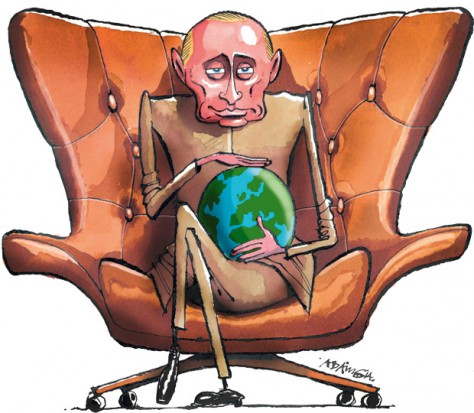How does the West challenge Vladimir Putin? James explained in his blog earlier that it is essential that the Russian president is challenged. But this evening’s snap by the ever-watchful Steve Back of a government document stating that the UK ‘should not support for now trade sanctions… or close London’s financial centre to Russians’ shows the difficulty countries including Britain will have in doing that challenging. The UK worries about the impact of sanctions on London, which as the ‘capital city of the world’, has an interest in keeping its doors open to Russian money. Meanwhile, as a country that relies so much on Russian gas and oil, Germany worries about the impact on its own supplies of any sanctions. It’s why ministers prefer to talk about the need to ‘de-escalate’ the crisis and only refer vaguely to the ‘costs’ for Putin in not respecting the sovereignty of Ukraine.
So what can the world do? Cancel the G8 summit, or kick Putin out of the G8 altogether? And does he care about that anyway? Ministers are clearly keen to find a ‘cost’ for Russia that doesn’t cost their own countries dear too, but they also need to find something that truly challenges Putin.
UPDATE, 21.30: David Cameron has spoken to Angela Merkel and François Hollande this evening. Here is the Number 10 readout of the call:
‘The PM spoke separately to both Chancellor Merkel and President Hollande this evening to discuss the situation in Ukraine.
‘In both calls, the leaders agreed that the international community should speak with one voice and send a clear message to Russia that its actions in Ukraine were completely unacceptable. They agreed they must continue to work very closely together in response to events in Ukraine including in preparation for the special European Council which has been called on Thursday. It would be important to be clear about the costs and consequences for the Russian Government of continuing to violate Ukraine’s sovereignty; and of supporting the people and Government of Ukraine in support of their efforts to build an inclusive Government and tackle economic challenges.
‘They agreed there could be an important role for the United Nations, and potentially other international organisations, in facilitating the dialogue between the Russian and Ukrainian authorities which is central to the shared objective of de-escalating tensions in the region.’







Comments